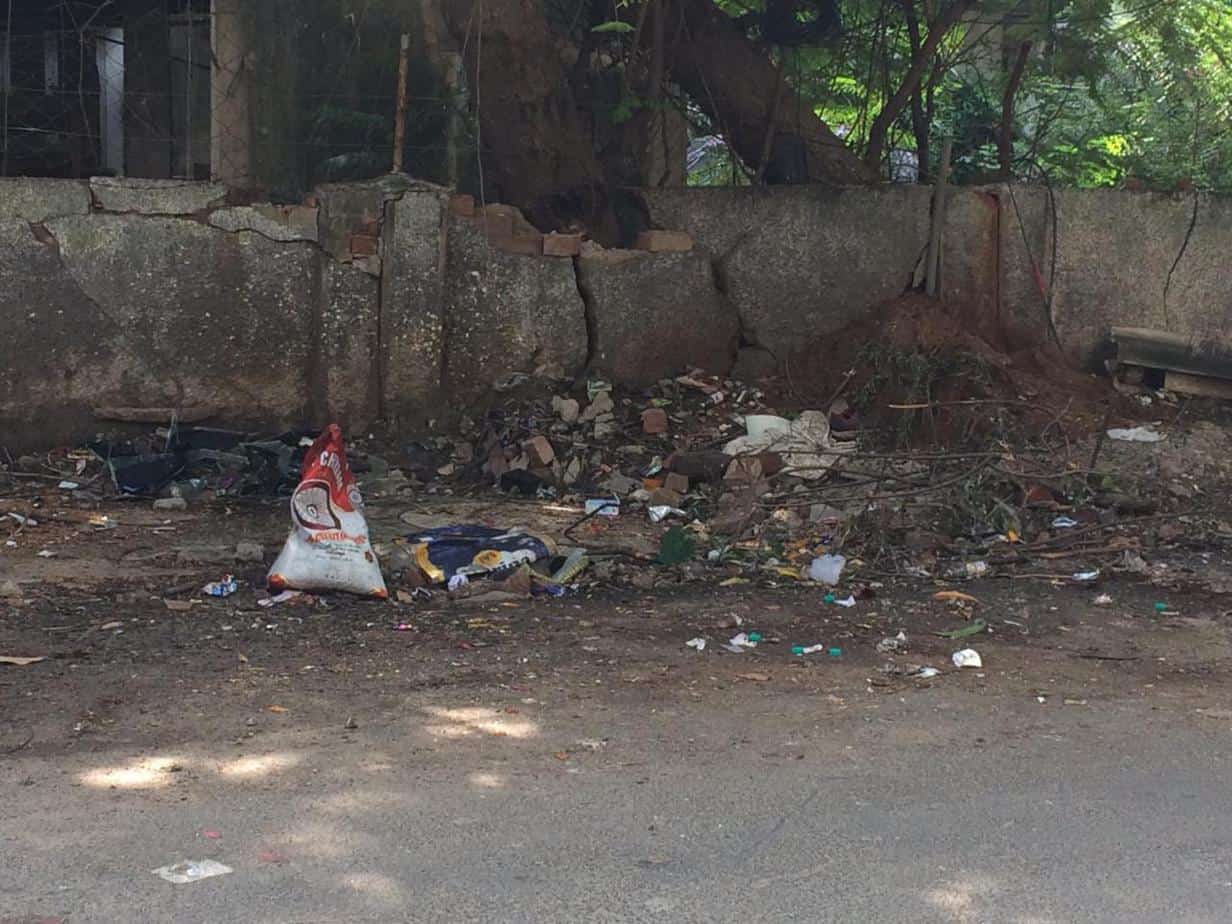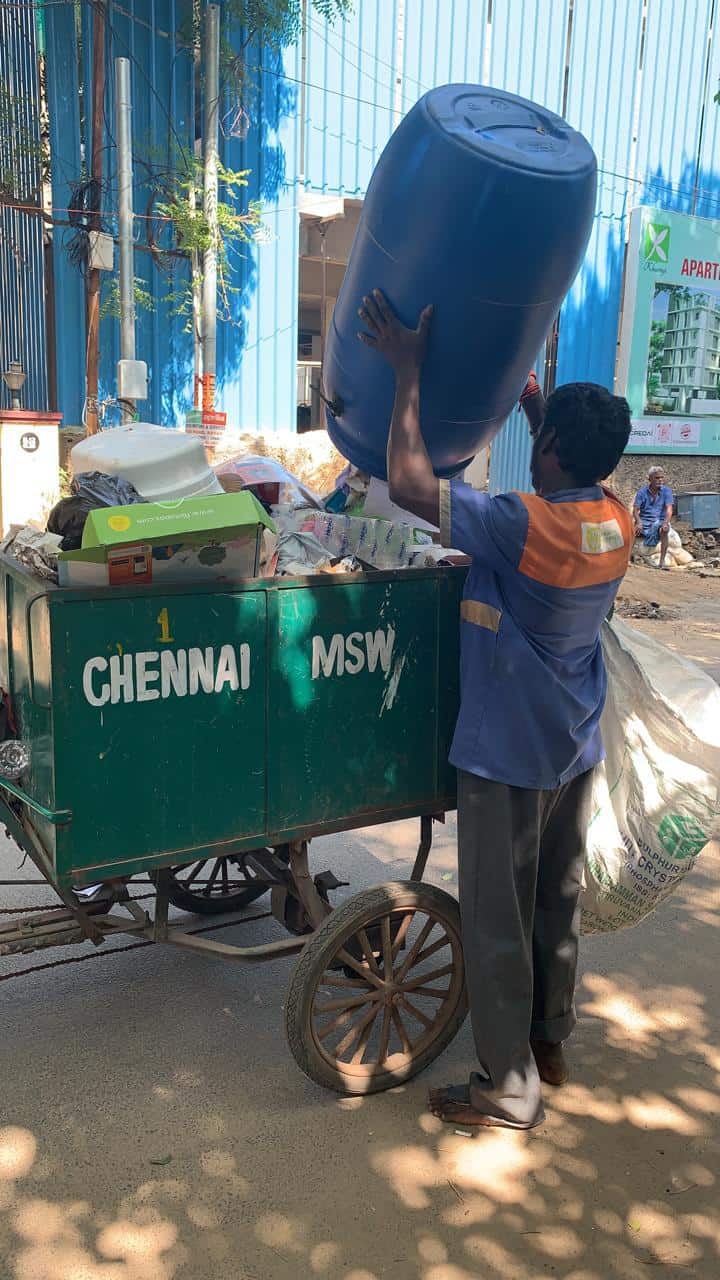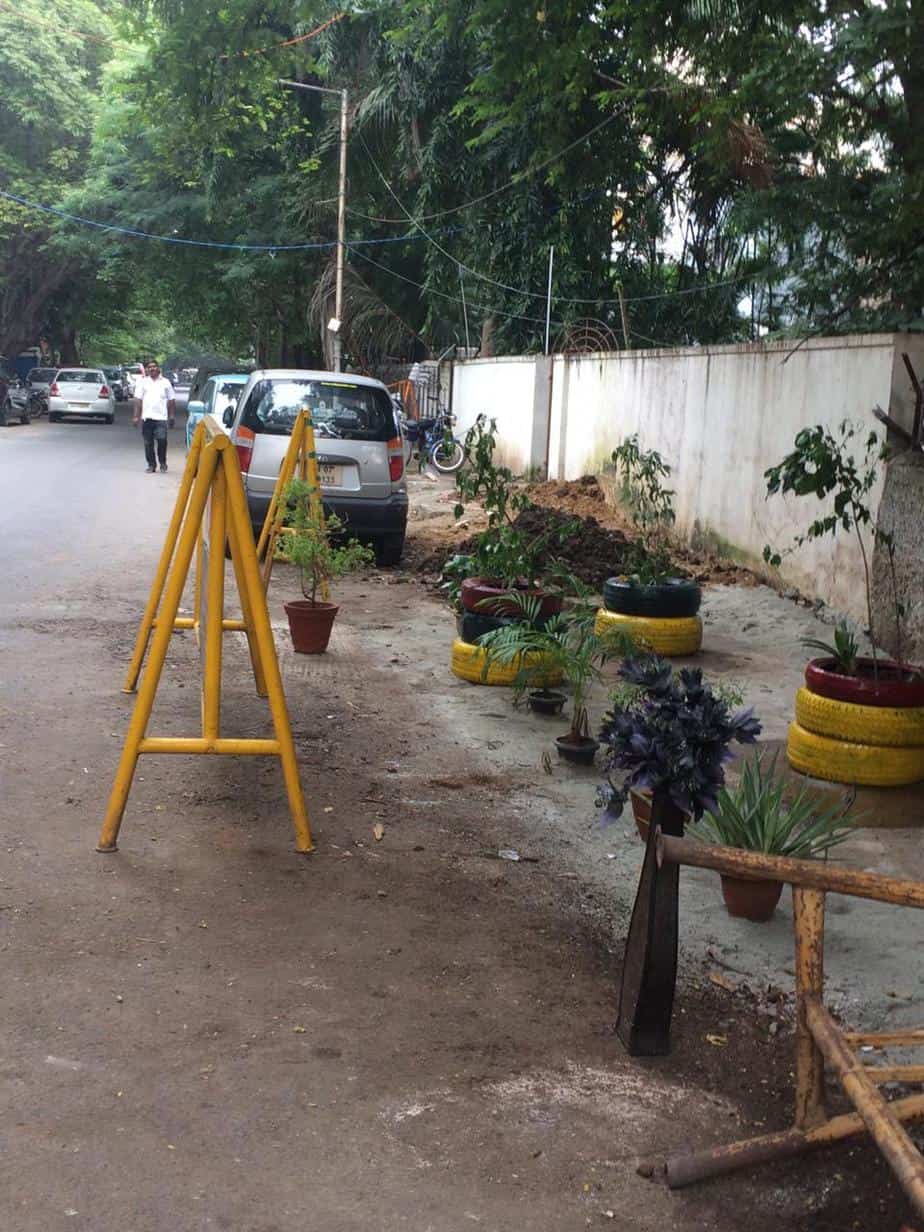Residents of Kasturba Nagar Association (ROKA), a RWA in Chennai, have streamlined their waste management using simple practices and in the third week of December, within three months of starting focused door-to-door collection, managed to hit the magic mark of 1 TPD (tonne per day) of organic kitchen waste collected for composting!! On an average, 800-850 kgs of wet waste is now being collected from four main roads in the neighbourhood, and sent to a municipal compost yard for processing.
Members of this RWA achieved this through a series of events and planning and sensitisation meetings. They hosted events such as Azhagiya Adyar and ROKARNIVAL and made an effective transition to door-to-door collection of waste.
The journey to the present
Driven by a passion to ensure clean, green streets in the immediate neighbourhood as well as the city at large, an energetic band of volunteers got together to create positive change. The first meetings of a few like-minded individuals set the ball rolling, and were followed by two back to back public gatherings.
The gatherings were branded with a festive theme to encourage public participation. The “Azhagiya Adyar” festival brought together all residents in an interactive seminar and workshop session on waste management, composting, recycling and home gardening. The events were designed to attract participation of not only the residents but also people employed as domestic helpers, gardeners, watchmen, sanitation workers and cooks, as their participation and inclusion is crucial to the success of any decentralised waste management system.
Younger audience also participated in these events, which included demonstration of the importance and methodology of waste management by a play-way method.
Such interactive sessions were followed by meetings and demonstration sessions conducted at the apartments and residences. Volunteers met and explained the process of source segregation to the residents.
Formalising the system
Meanwhile, the need for a formal structure was felt. While the residents were volunteering their time and effort, it was felt that bringing them under one banner would improve the efficacy of the process and help to kickstart dialogue with the authorities from the Corporation. With this in mind, Residents of Kasturba Nagar Association (ROKA) was formed. ROKA appointed a set of motivated office bearers and an executive committee to take forward the agenda of revamping waste management in the neighbourhood.
There were some initial setbacks, though. Despite many meetings and follow up, residents initially showed a rather lax attitude towards segregation. The inertia stemmed from their belief that their participation would be too small to make a difference and the idea that someone else would initiate the process of segregation. This led to slow progress in the activities.
Learning from others
However, ROKA was not deterred. Inspired by similar experiences of other RWAs in the city and lent a helping hand by the officials from the Greater Chennai Corporation, volunteers set out on a door-to-door sensitisation drive. They visited every apartment and residence in the area. They showed residents pictures of the extent of waste accumulation in the area and the harm it could cause.

Volunteers showed residents pictures of waste hotspots in the area to encourage waste segregation. Pic : ROKA
The volunteers were trained in source segregation and provided with material they could share with residents, for them to follow the same in their households. The volunteers also shared the door-to-door collection schedule with the residents and requested them to cooperate.
With this personal visit to each home and apartment by the volunteer residents, compliance jumped dramatically and ROKA was enthused by the success of this initiative. Errors and mistakes did occur, and still do, but there is about 75% proper source segregation among the residents of the area.
GCC pitches in
GCC did their bit by setting up a micro-composting facility nearby, but as the collection improved rapidly – from about 300kg a day in early October to a steady 800 kg per day by mid December – three of the five pits were filled up and an alternative needed to be found. With the collection of pure organic waste going up steadily, a dedicated vehicle was allotted to move this waste to the main composting yard at Saidapet and Guindy.
The volunteers have been going on daily rounds, along with the waste collectors, inspecting each and every bin, ensuring removal of non biodegradable items from the bins and giving feedback to the residents and the team.
Sustained effort and a clear operational procedure helped increase compliance and get more residents to segregate waste at source. As a result of this, two roadside bins, which were previously often found to be overflowing, have been removed. In their place, a dedicated green space has been created with plants. The efforts and success of ROKA has shown that where there is a will, there is a way.


Chennai corporation has big plans, but execution would be herculean task
Wow what a great effort. So proud of them.
Amazing act of kindness. Proud of the Team.
An act leading towards healthy environment is the best donation one can do by keeping area clean and safe (away from various pest and stray animals).
If there is a will there is a way.
I salute all the volunteers.